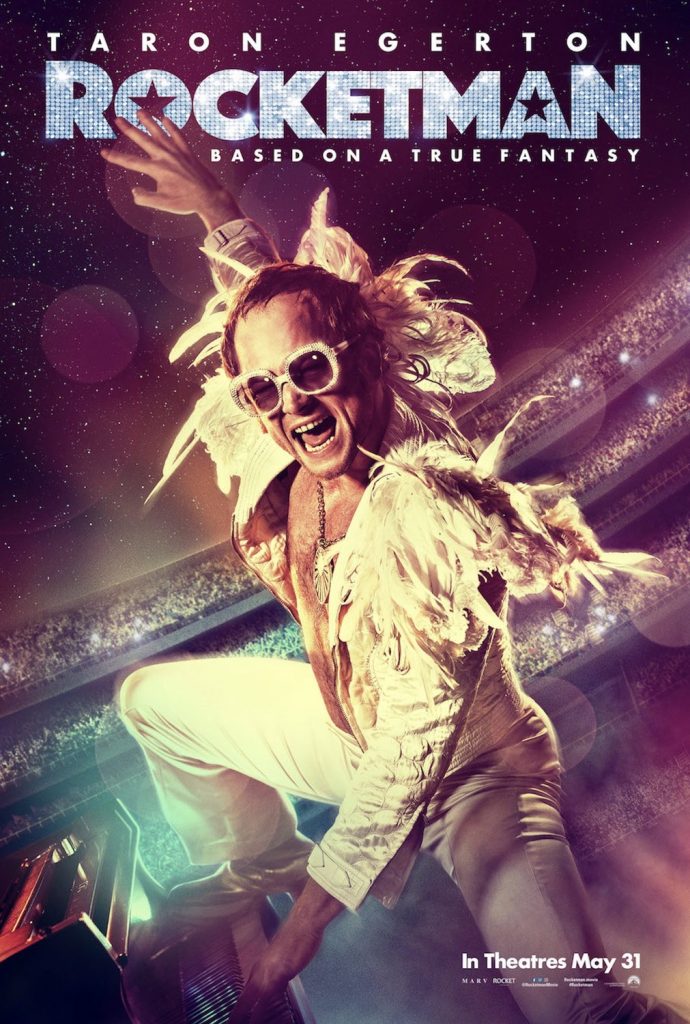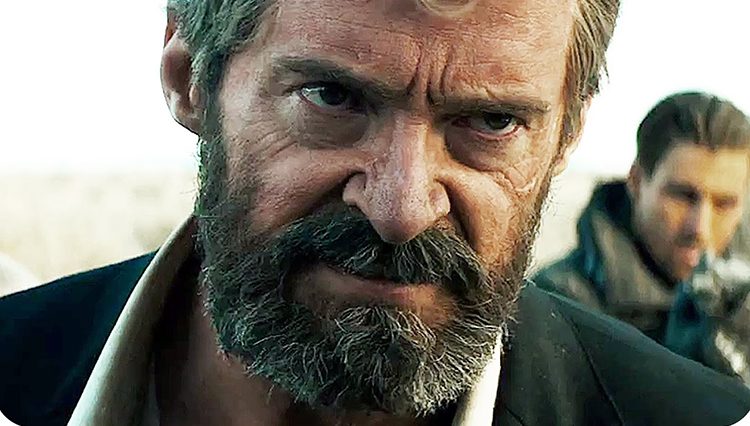It’s no secret that music biopics seem to be Hollywood’s latest obsession. They’ve popped up every once in a while in the past but seem to be inescapable in this day and age. It doesn’t help that the subgenre is often uneven, rarely finding a true grasp on how to portray a musician’s life. The only film to have come close to it was 2015’s Love & Mercy, depicting the life of the Beach Boys’ Brian Wilson. Skip ahead a few years and the painfully mediocre Bohemian Rhapsody was nominated for Best Picture at the Academy Awards, paving a new path for undeserving travesties of cinema. Despite being one of the worst films of the year and of all time, that somehow managed to rack up almost $1 billion in box office dollars and set a new low bar for music-driven biopics.
Right when it couldn’t possibly get any worse, we have Rocketman to save the day. Directed by Dexter Fletcher, the film tells the tale of Elton John, from his early childhood days to his eventual partnership with Bernie Taupin, which lead to his most famous musical compositions and performances. Portrayed by Taron Egerton, the film offers a bright and colorful look into the life of one of the world’s most famous musicians but also gives us a glimpse at the darker side of his journey to fame.

One of the greatest artistic achievements of the past decade was 2018’s At Eternity’s Gate, a moving Vincent Van Gogh portrait that looked, sounded, and felt exactly like a film Van Gogh could’ve made himself if he could’ve. Hollywood has rarely been one to make their mark with music biopics as a result of those most likely to see the movie being, more often than not, educated enough about the person whose story is being told. In order to truly succeed, a biopic representing the life of an artist needs to portray the world from the artist’s perspective instead of serving as a simple, by-the-numbers effort that anyone with Wikipedia at their fingertips could do just as well. This is the issue with most of these movies, and why they never truly seem to capture the heart and soul of the legend their subject supposedly is.
On the surface, Rocketman seemingly offers nothing that we haven’t seen or heard before. It depicts Elton John’s life from a very straightforward perspective (time-wise) and showcases a variety of different contributions to his rise to fame and his downward spiral into drug and sex addiction. What makes this one stand out from the rest, however, is that it has a distinct style, one that helps enables the audience to care about the film’s characters and further generate a visible response. Rocketman uniquely portrays Elton’s life through the vision of an illusionist musical dream, blurring the line between fantasy and reality in a structurally cohesive way but also a beautifully alluring one.

Egerton’s performance as Elton John is transcendent. It’s easily one of the greatest performances of the year; possibly the greatest, and also one of the best of the decade. He completely embodies the role and does more than just make it his own: he makes certain that no other actor dare step foot anywhere near the role for the next hundred years at the very least. Nothing can prepare you for the riveting experience one undergoes when immersing themselves in Egerton’s portrayal. There’s a scene featuring the singer’s famous hit “Rocket Man” that left me speechless. That scene alone is physically ravaging in its emotional evisceration but the rest of the movies somehow manages to deliver one of the grandest cinematic spectacles the naked eye has ever witnessed in just two hours.
Fletcher’s direction is absolutely breathtaking on every level, but something so wonderful about it is just how contained it is. He has such a great eye for balancing the extravagant and the refined, creating a distinctly flamboyant but delicate musical endeavor in the process. Rocketman is a movie with such a large “wow” factor that it’s hard to take in everything about it all at once. Many will be smitten with its lurid and sensory-pleasing visual flair while others will appreciate the details that arise under the surface. Something amazing about it, though, is how each group will certainly begin to enjoy the aspects cherished by the other. This is a film that many will undoubtedly enjoy at first, but will begin to love more and more as their thoughts on it sit with them over the course of a few days.
In addition to it being a deeply poetic piece of cinema, it’s still just a really fun time. All of the musical numbers have a panache for color and whimsy (or lack thereof), but the movie doesn’t slip into the gateway of style over substance. And despite the song-set sequences not matching the chronology that the songs themselves were released in, the movie somehow makes it work so much that even cynics and nitpickers won’t care.

But if there’s anything audiences expect going into this movie aside from doing Elton’s music justice, it’s doing his sexuality justice. And I’m happy to report that the film does just that. Rocketman spends the majority of its runtime making sure that nothing is left to the viewer’s imagination in terms of Elton’s relationships and feelings, allowing for a more investing and truthful retelling of his story instead of a safe and underdeveloped one.
Rocketman is more than just one of the most lavish and consistently entertaining films of the year…it’s one of the greatest music-driven movies of all time. Taron Egerton delivers a performance worthy of every acting award available, while the supporting players feel right at home in their roles as well. Colors and choreography are on point here, while musical numbers are as exuberant as they can be and storytelling craft is pitch-perfect. Studios will be glad to know that they can stop finding new excuses to release music biopics because there’s really no point anymore. Rocketman would blow them all out of the water.
Grade: A




